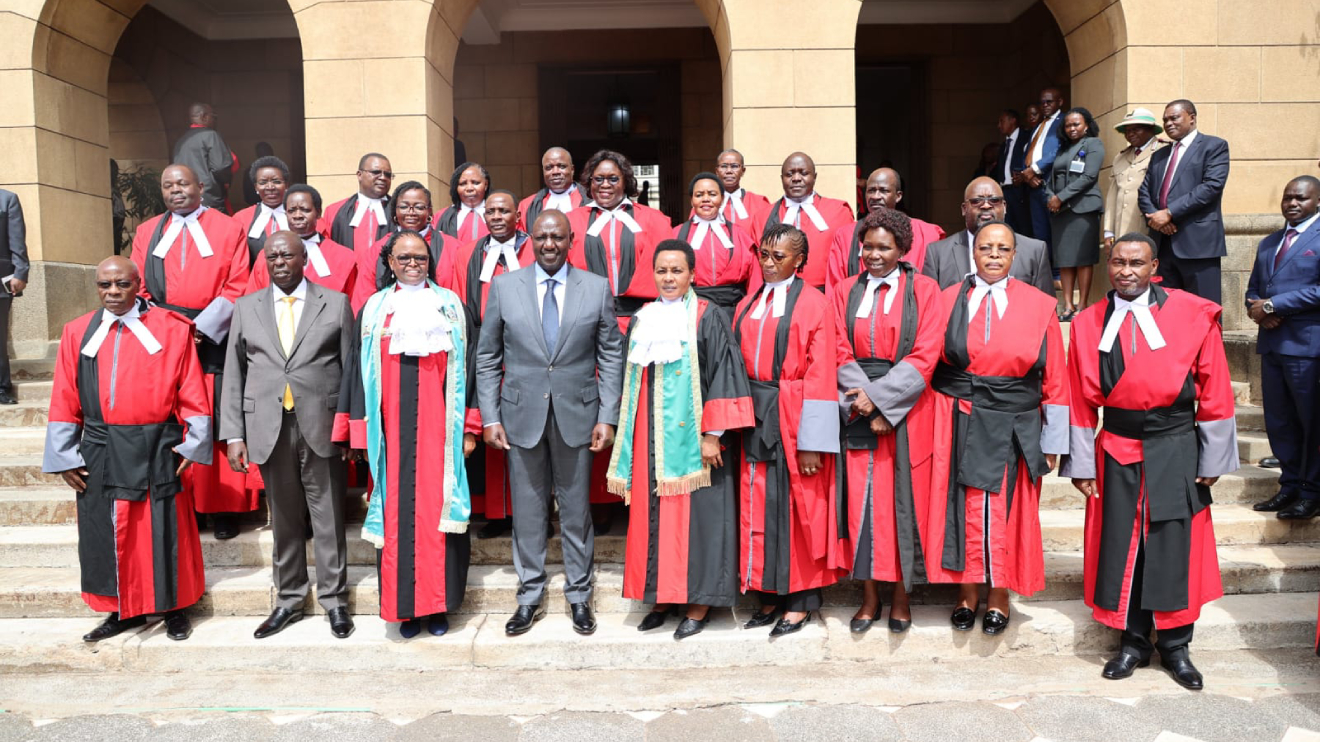The Judiciary has received a substantial boost in its annual budget allocation, with an increase of approximately Sh4.3 billion compared to the previous year.
This development comes as a significant step forward in addressing the longstanding issue of funding insufficiency faced by the courts.
President William Ruto, in a promise made last year during his swearing-in ceremony, vowed to incrementally raise the Judiciary's budget by Sh3 billion annually, recognizing the importance of providing adequate resources to enable the institution to fulfil its constitutional mandate.
"My administration will scale up the budgetary allocation to the Judiciary by an additional Sh3 billion annually for the next 5 years," Ruto said.
Read More
In his recent budget speech delivered on Thursday, Treasury Cabinet Secretary Njuguna Ndung'u, announced the allocation of Sh23.2 billion for the Judiciary, indicating the government's commitment to enhancing access to justice.
“Further, the Government escalated the actualisation of the Judiciary Fund that will increase the allocation of resources towards enhancing access to justice,” Ndung'u said.
He also highlighted the implementation of the Judiciary Fund, which was established in July of the previous year, effectively resolving the executive-judiciary dispute surrounding its realization.
Article 173 of the Constitution established the Judiciary Fund, intended to be administered by the Chief Registrar of the Judiciary.
The fund's purpose is to cater to the administrative costs of the courts, emphasizing the necessity of financial autonomy to uphold judicial independence.
The delayed establishment of the fund was primarily attributed to the absence of a dedicated account and regulations guiding its operations.
The judiciary consistently stressed the importance of financial autonomy as a crucial element of their independence.
However, with its operationalization last year, the Judiciary Fund has become a vital instrument in ensuring the effective functioning of the judicial system.
Recognizing the significance of a well-funded justice system, Prof Ndung'u also proposed considerable allocations for various institutions involved in the fight against corruption and the promotion of good governance.
He requested a budget of Sh3.9 billion for the Ethics and Anti-Corruption Commission (EACC) and allocations of Sh3.6 billion for the Office of the Directorate of Public Prosecutions, Sh8 billion for the Criminal Investigations Services, and an equal amount for the Office of the Auditor General.
The increased budget allocation for the Judiciary marks a significant milestone in recognizing the importance of a well-funded justice system.
By providing the necessary resources, the government is taking a crucial step towards enhancing access to justice and promoting the independence of the judiciary.
This investment demonstrates a commitment to upholding the rule of law and ensuring that the courts can effectively carry out their constitutional duties.
With the implementation of the Judiciary Fund and strengthened allocations for anti-corruption efforts and other critical institutions, Kenya is poised to make notable strides in the pursuit of justice and good governance.




-1730399993.jpg)





